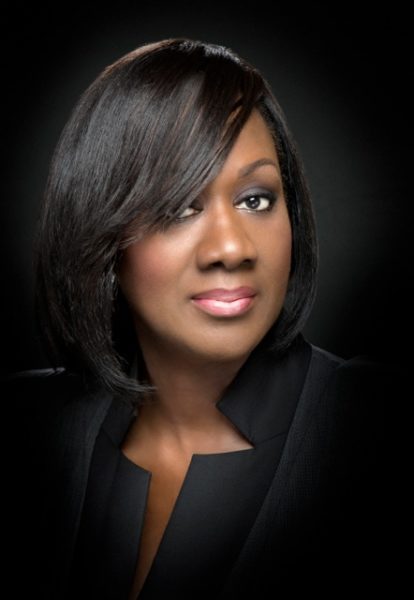Features
Money Matters with Nimi: Breast Cancer Awareness
 At the start of 2013 all seemed to be going well for Kemi and her family. Their first child had just started university, her husband’s business was beginning to turn around after a difficult year, and they had finally completed their own home and recently moved in. It seemed like it was going to be a good year. In April, Kemi noticed a small but palpable lump on her left breast. Her doctor referred her to a teaching hospital and a biopsy confirmed that she had stage three aggressive breast cancer.
At the start of 2013 all seemed to be going well for Kemi and her family. Their first child had just started university, her husband’s business was beginning to turn around after a difficult year, and they had finally completed their own home and recently moved in. It seemed like it was going to be a good year. In April, Kemi noticed a small but palpable lump on her left breast. Her doctor referred her to a teaching hospital and a biopsy confirmed that she had stage three aggressive breast cancer.
Kemi had surgery in May at a cost of N100,000 to remove the lump and she is now having a course of chemotherapy which is costing her N40,000 each week. She will need six sessions in the first instance. She will require a second operation in due course, followed by radiotherapy for which a down-payment of N100,000 is required. Beyond this she is told that she will require treatment for at least five years for ultrasound scans, blood tests, kidney and liver function tests, chest x-rays, and so on; some of these will have to be repeated.
Members of Kemi’s extended family rallied round as best they could but now the exorbitant costs over a prolonged period of time have made it impossible for them to continue to contribute as they did in the early stages of her treatment. Her husband has no choice but to put their new home up for sale to release badly needed funds to try to save her life.
October, “Breast Cancer Awareness Month” is an annual campaign to increase awareness of the disease. It affords us an opportunity to focus on this dreaded and devastating disease that appears to be becoming more and more prevalent. While many people are aware of breast cancer, many neglect to actually take the steps to have a plan to detect the disease in its early stages and when there is a much greater chance of survival.
One of the key messages for Breast Cancer Awareness Month in the United Kingdom is that one in eight women will be diagnosed with breast cancer. Whilst we are not absolutely certain of the statistics in Nigeria, it is alarming that increasingly we all seem to have lost or know some one who has been badly affected by this killer disease.
Most people tend to overlook the financial implications of a serious illness. In our society it is seen as a taboo to even consider the possibility that one could become really ill let alone the fact that one could die; it is like tempting fate. Yet statistics indicate that one in eight women will be diagnosed with breast cancer.
Far too many people ignore the need for insurance until a major mishap or setback occurs; it is only then that the impact of inadequate insurance coverage is glaring. No matter how meticulous you are with your finances, failure to purchase adequate insurance can impair your financial future and put you or your loved ones in a desperate situation in an instant.
How healthy are you? If you or anyone in your family were to ever become gravely ill, can you afford the best medical treatment available? Do you have health insurance in place? Health insurance covers some of the cost of treating the insured person’s illnesses or injuries. In some cases, it pays for preventive care, such as annual physicals and diagnostic tests. You may have health insurance as an employee benefit from your job or you may also buy individual health insurance directly from an insurance company. You then pay premiums to purchase coverage and the insurer is obliged to pay some or all of your healthcare costs, based on the terms of your contract.
Health insurance varies significantly from plan to plan. Generally, most plans will cover a combination or hospitalization, prescription drugs, and treatment for serious illnesses. Dire medical conditions are difficult enough to cope with; if you become ill, the last thing you need to have to worry about is mounting financial challenges.
As morbid as it sounds, can your loved ones afford to lose you? Could your family or dependants pay for the funeral, organize the family finances, service any outstanding debt and continue in their current standard of living? Or, would they face extreme hardship in the event of the death of their breadwinner? The main objective of life insurance is to replace income that would be lost should the policyholder become incapacitated or die.
At some point in time you might need to call upon some form of insurance. Whilst insurance will not eliminate the risk of loss or damage to property, injury, illness or death, it does relieve the insured of at least some of financial losses these risks bring. The cost of coverage of all these scenarios is far lower than if you were to have to service them if they do indeed arise. If you don’t have the necessary insurance cover, do make this one of your financial priorities before the end of this year.
If you can afford it, try to put a solid health insurance policy in place that can help you have access to the health care you will need if you are diagnosed with breast cancer or some other deadly disease. It is imperative that you read the fine print and understand your coverage just make sure it will actually provide the necessary coverage should you ever need it.
Critical illness cover is a relatively recent addition to the life insurance industry. It was never intended to replace health, life or disability insurance. Instead, its purpose is to fill the gap in existing medical insurance coverage to pay for illness and specific kinds of treatment not ordinarily covered by traditional insurance or for any other expenses the insured wants to spend the lump sum on.
A family history of a certain illness may be enough for the company to exclude that disease. Most policies are priced based on the age, gender and family history so the more medical questions you can honestly answer no to, the better.
Of course nothing is more important than early detection through regular mammograms and clinical breast exams. Since breast cancer is a disease that affects so many women, all women should make sure that they have regular screening to improve their chances of early detection. Take the necessary, precautions, protect yourself by having an early detection plan in place and encourage your daughters, relatives and friends to do the same.
























